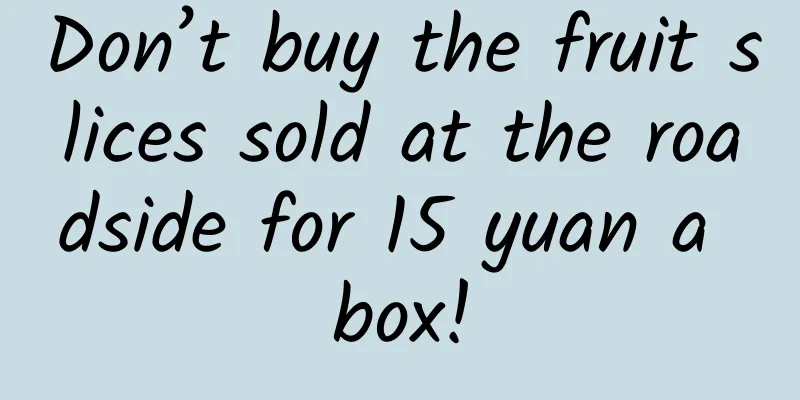Can I eat plums during menstruation?

|
There are many foods that you cannot eat during menstruation, otherwise it will affect your health. However, you can still consume some fruits such as plums. Generally speaking, it will not cause any harm to your body. You can also eat more foods rich in vitamins. These foods are also very common. Only by improving your diet can your menstruation be healthier. 1. Before menstruation : Supplement the nutrients needed for physiology through diet: B vitamins, as well as vitamin A, vitamin C, and vitamin E. (1) Foods rich in B vitamins: wheat germ, pork, soybeans, peanuts, ham, black rice, animal liver, seaweed, kelp, milk, cereals, bananas, walnuts, etc. (2) Foods rich in vitamin A: animal liver, milk and dairy products, eggs, carrots, broccoli, spinach, lettuce, oranges, apricots, sweet potatoes, etc. (3) Foods rich in vitamin C: leeks, bell peppers, celery, cauliflower, tomatoes, spinach, cabbage, potatoes, snow peas, tangerines, oranges, grapefruits, grapes, strawberries, etc. (4) Foods rich in vitamin E: wheat germ oil, corn oil, peanut oil, sesame oil, walnuts, melon seeds, kiwi fruit, soybeans, spinach, rapeseed, corn, nuts, etc. 2. During menstruation : You can appropriately supplement some warming foods or foods that relieve menstrual pain. (1) Foods that warm the body: Women with a cold constitution can eat more foods that warm the meridians and dispel cold, such as dog meat, mutton, chestnuts, lychees, brown sugar, and ginger. (2) Foods that relieve dysmenorrhea: Women with dysmenorrhea can eat more foods such as spinach, celery, coriander, yam, carrots, grapes, kelp, black fungus, etc., which can promote blood circulation and relieve dysmenorrhea. (3) Others: If you have symptoms such as poor appetite and back pain during your period, you should choose foods that are nutritious, spleen-strengthening, appetite-stimulating, and easily digestible, such as jujube, yam, noodles, and coix seed porridge. 3. After menstruation : After menstruation, especially for those with heavy menstruation, you can supplement protein, iron and minerals appropriately within 1-5 days after the menstruation ends. (1) Foods rich in protein and minerals: mainly include beans (including soybeans, black beans, etc.), milk (including cow's milk, goat's milk, etc.), seafood, animal offal, meat (including pork, beef, mutton, etc.), rice, etc. (3) Foods high in iron: Fish, lean meat, animal liver, animal blood, soybeans, spinach, etc. are rich in iron and have high biological activity and are easily absorbed and utilized by the human body. |
>>: Can I eat corn during menstruation?
Recommend
Is it good to drink hot water during menstruation?
Drinking more water is a phrase that is often com...
What are the consequences of hysterectomy?
Some women may feel pain during menstruation beca...
What should I do if my menstrual flow is too heavy?
Menstruation is an extremely important matter in ...
Low progesterone usually causes bleeding for a few days
Progesterone can help pregnant women stimulate ut...
A picture of a fleshy lump on the vulva
A fleshy lump on the vulva may be caused by genit...
Can drinking angelica water induce menstruation?
Chinese medical culture and art have a long histo...
What injections are given for endometriosis? Authoritative experts tell you
As a gynecological disease, endometriosis trouble...
Scientific weight loss methods for postpartum obesity
Many women tend to become obese after giving birt...
Why does a 70-year-old woman sweat?
Many people like to sweat, and most people think ...
What is polycystic ovary obesity?
The so-called polycystic ovary obesity is because...
How long does it take for menstruation to return to normal after an abortion?
The bleeding time after artificial abortion is ge...
What to do if women are sexually cold
Generally speaking, men will never say that they ...
Cervical softening in late pregnancy
During pregnancy, in the late pregnancy, some chi...
What causes women's swollen feet
The phenomenon of swollen feet often occurs in pe...
High-protein diet causes cancer? Are these "scientific evidences" reliable?
Real points: There is no clear scientific evidenc...









